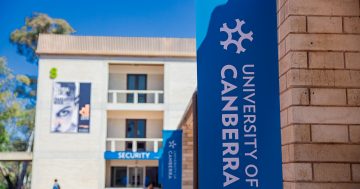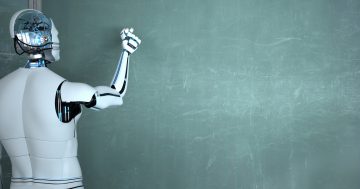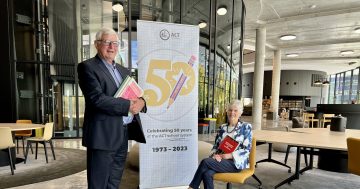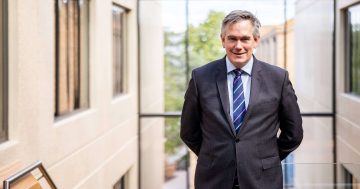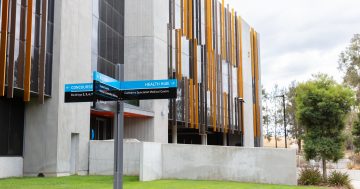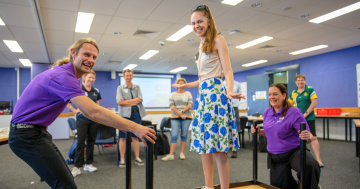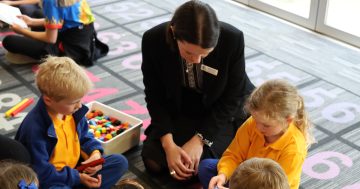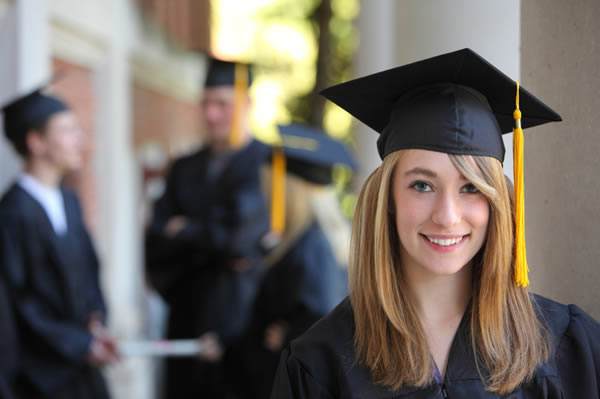
In John Dewey’s book Democracy and Education he writes, ‘it is illiberal and immoral to train children to work not freely and intelligently but for the sake of the work earned’. I agree with him, and think so too would most Canberrans. To see a teacher teaching well, full of compassion and creativity, is surely one of the more inspiring experiences life has to offer. Education is one of those subjects upon which everyone has an opinion, and yet when the conflicting opinions are reduced to their true convictions, the discrepancies dissolve, and a few universal truths prevail.
The first truth is that cultivating citizenship through a liberal arts education is central to the wellbeing of society. Indeed, for even commerce and the sciences to succeed they need to be driven by a creative and humanistic imagination. The second is that there has never been more evidence to suggest that the ability to think creatively and critically, to reason, and to ask questions, are the fundamental components to the development of a compassionate society.
As a child growing up in rural Australia, I was all too often an unwilling witness to cruel acts to animals. The slow slaughter of sheep, gunshot wounds to dogs, and the sad eyes of imprisoned pigs are but some of the images etched in my mind. Invariably the men and boys who were cruel to animals lacked the humanity a liberal arts education has to offer – they for instance could never play the piano.
The third and final truth is that never before have our systems of secondary and tertiary education so wilfully disestablished the Humanities from the educational process. Never before have our education systems been so stupidly obsessed with quantifying everything that happens with a number and then moderating those numbers to determine an order of academic status for each student (or client as the ANU often refers to them). This is the philosophy of Standardisation and it is destroying the ability of teachers and students alike to think and imagine autonomously and to question authority – an essential ingredient for a humane society.
In the ACT College system standardisation basically works by testing each student in general intellectual skills, and giving the student a score which is then used to determine, arbitrarily, how different subjects can compare with one another. For instance, a score of 80 in drama might equate to a score of 55 in computer science. This encourages the student to choose subjects based on a score rather than their natural interests or impulses. Over past decade this has resulted, among many other miscarriages of management, in a culture of education that is hostile to the Humanities.
In the year 2000 Narrabundah College boasted 3.6 music teachers and two fulltime drama teachers. Now it has .6 music teachers and one fulltime drama teacher. It was only ever a matter of time before the administrators had their way with Canberra’s School of Music, and the disestablished the School of Humanities. And it t is only a matter of time until the argument is put: why should we be teaching Humanities subjects at all? Why shouldn’t we simply teach subjects that the economy demands, create an underclass of passive idiots, consign them to a massive debt and be damn well done it? Well, this is exactly what is happening in Australia today.
It is no surprise that Australia is completely besieged with subservient politicians who are incapable of questioning authority. How many times do we need another dunderhead making it to the Senate and proudly boasting that he believes in lower taxes and a hand-up instead of a hand-out? Whatever the hell that means! Government policy is becoming increasingly inhumane. Like the men and boys unaffected by the cruel torment of animals, our Governments are unaffected by the hardships it imposes on Australia’s most vulnerable.
For me, politics begins with education. And I know that an educated and compassionate society, aware of its rights and imagining the future, isn’t possible with the standardisation of its humanity, but rather the true liberalisation of its people.
For me, to not challenge authority, in all of its forms, is to be idle and complicit to its repression, and this is why I engage in politics.
Our newest contributor Steven Bailey is the First Officer and Team Leader of The Australian Sex Party – Canberra. Through theatre, music, education, and politics, Steven believes we can make stronger communities and a better world.












